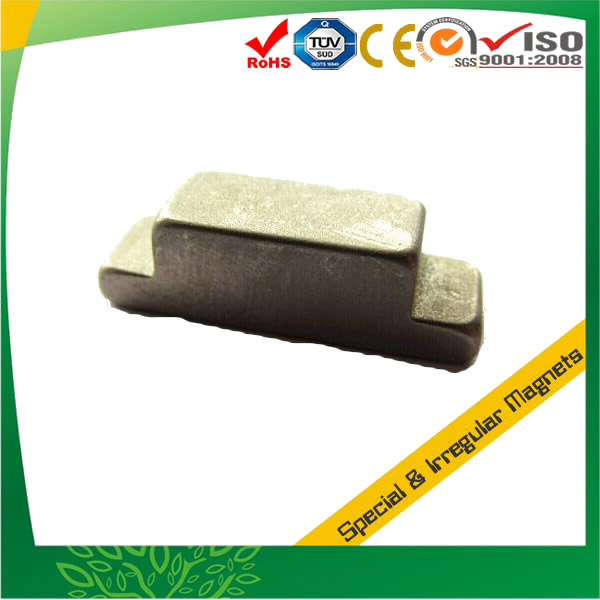N30AH Ring Custom-made NdFeB Magnet, Custom NdFeB Ring Magnet, N30AH Neodymium Magnet, Strong Magnets, High Working Temperature Magnets, High Corrosion Resistance Magnets, Max. Working Temperature 220 °C Magnets
Product Name:N30AH Custom-made Strong NdFeB Magnet
Magnet ID:Neodymium-N30AH-3
+ Highest Energy of All Permanent Magnets
+ Moderate Temperature Stability
+ High Coercive Strength
+ Moderate Mechanical Strength
Our Superiority: Customized is Available!
* T/T, L/C, Paypal and other payment accepted.
* Orders of any size.
* Worldwide delivery. Fast Shipping.
* Quality and price guaranteed.
* Contact us to discuss your magnet needs.
Hangseng Magnetech Inc. (SUPERMAG, neoi) is your best source for the highest quality magnets, neodymium magnets, magnetic devices and expert application assistance for OEM, point-of-purchase, industrial and retail markets.
1.Material: Strong NdFeB Magnet
2.Shape: Arc
3. Size: Custom-made dimension
4.Grade:N30-N52,30M-50M,30H-48H,28SH-45SH,28UH-42UH,28EH-38EH,28AH-33AH
5. Coating: Ni, Ni-Cu-Ni, Zn, Ag, Au and other special plating and coating
6.Detail Features of product:
1) Low cost
2) High corrosion resistance
3) High working temperature
4) Best choice for industrial application
Grades
Neodymium magnets are graded according to their maximum energy product, which relates to the magnetic flux output per unit volume. Higher values indicate stronger magnets and range from N35 up to N52. Letters following the grade indicate maximum operating temperatures (often the Curie temperature), which range from M (up to 100 °C) to EH (200 °C).
Grades of Neodymium magnets:
N35-N52
N33M-N48M
N30H-N45H
N30SH-N42SH
N30UH-N35UH
N28EH-N35EH
Highest Energy Rod Permanent Magnets Magnetic properties
Some important properties used to compare permanent magnets are:
Remanence (Br)
which measures the strength of the magnetic field
Coercivity (Hci)
the material’s resistance to becoming demagnetized
Energy product (BHmax)
the density of magnetic energy
Curie temperature (TC)
the temperature at which the material loses its magnetism
Neodymium magnets have higher remanence, much higher coercivity and energy product, but often lower Curie temperature than other types. Special neodymium magnet alloys that include terbium and dysprosium have been developed that have higher Curie temperature, allowing them to tolerate higher temperatures. The table below compares the magnetic performance of neodymium magnets with other types of permanent magnets.





